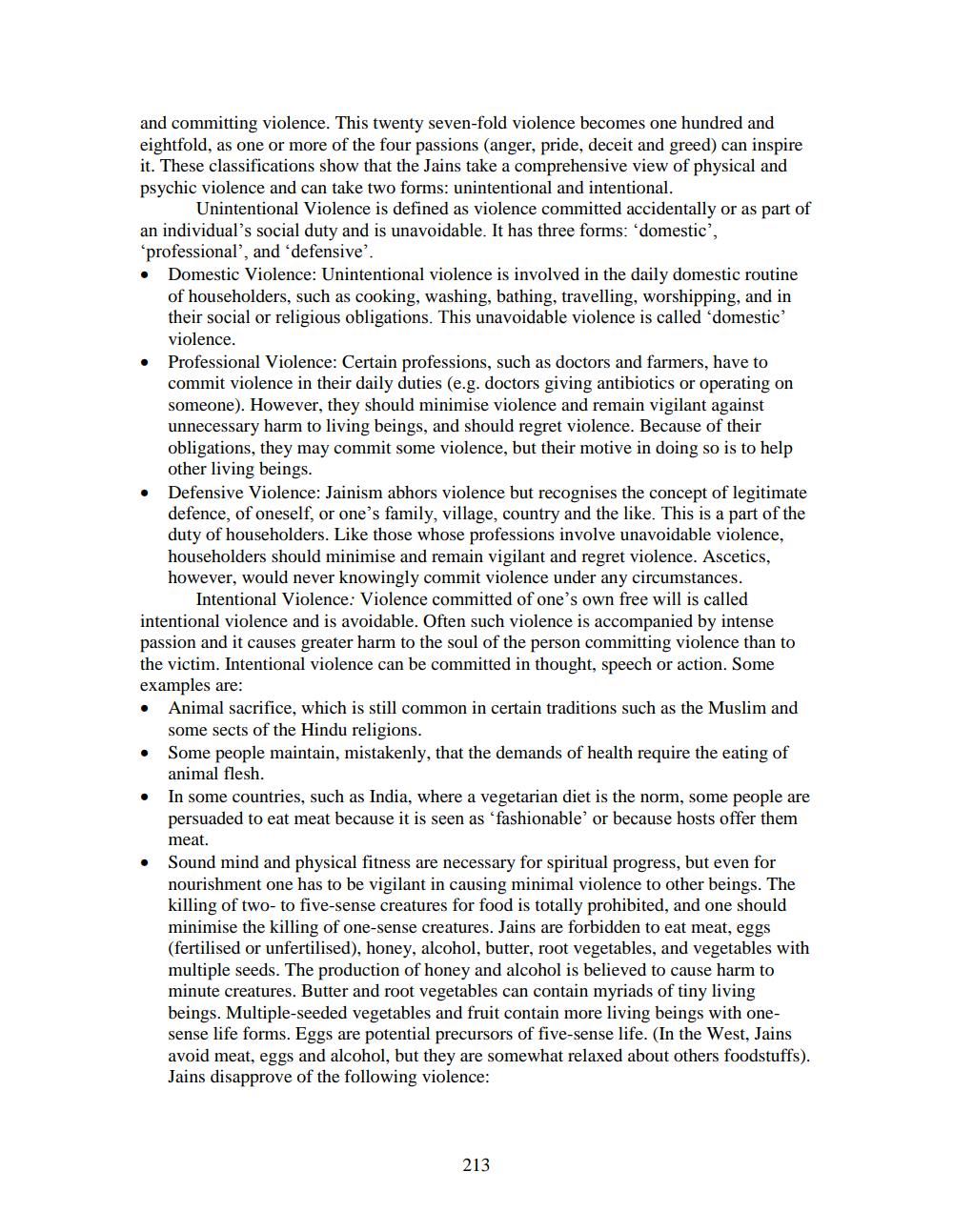________________
and committing violence. This twenty seven-fold violence becomes one hundred and eightfold, as one or more of the four passions (anger, pride, deceit and greed) can inspire it. These classifications show that the Jains take a comprehensive view of physical and psychic violence and can take two forms: unintentional and intentional.
Unintentional Violence is defined as violence committed accidentally or as part of an individual's social duty and is unavoidable. It has three forms: domestic', professional', and 'defensive'.
Domestic Violence: Unintentional violence is involved in the daily domestic routine of householders, such as cooking, washing, bathing, travelling, worshipping, and in their social or religious obligations. This unavoidable violence is called 'domestic violence. Professional Violence: Certain professions, such as doctors and farmers, have to commit violence in their daily duties (e.g. doctors giving antibiotics or operating on someone). However, they should minimise violence and remain vigilant against unnecessary harm to living beings, and should regret violence. Because of their obligations, they may commit some violence, but their motive in doing so is to help other living beings. Defensive Violence: Jainism abhors violence but recognises the concept of legitimate defence, of oneself, or one's family, village, country and the like. This is a part of the duty of householders. Like those whose professions involve unavoidable violence, householders should minimise and remain vigilant and regret violence. Ascetics, however, would never knowingly commit violence under any circumstances.
Intentional Violence: Violence committed of one's own free will is called intentional violence and is avoidable. Often such violence is accompanied by intense passion and it causes greater harm to the soul of the person committing violence than to the victim. Intentional violence can be committed in thought, speech or action. Some examples are:
Animal sacrifice, which is still common in certain traditions such as the Muslim and some sects of the Hindu religions. Some people maintain, mistakenly, that the demands of health require the eating of
animal flesh. • In some countries, such as India, where a vegetarian diet is the norm, some people are
persuaded to eat meat because it is seen as 'fashionable' or because hosts offer them meat. Sound mind and physical fitness are necessary for spiritual progress, but even for nourishment one has to be vigilant in causing minimal violence to other beings. The killing of two-to five-sense creatures for food is totally prohibited, and one should minimise the killing of one-sense creatures. Jains are forbidden to eat meat, eggs (fertilised or unfertilised), honey, alcohol, butter, root vegetables, and vegetables with multiple seeds. The production of honey and alcohol is believed to cause harm to minute creatures. Butter and root vegetables can contain myriads of tiny living beings. Multiple-seeded vegetables and fruit contain more living beings with onesense life forms. Eggs are potential precursors of five-sense life. (In the West, Jains avoid meat, eggs and alcohol, but they are somewhat relaxed about others foodstuffs). Jains disapprove of the following violence:
A NCSI.
213




